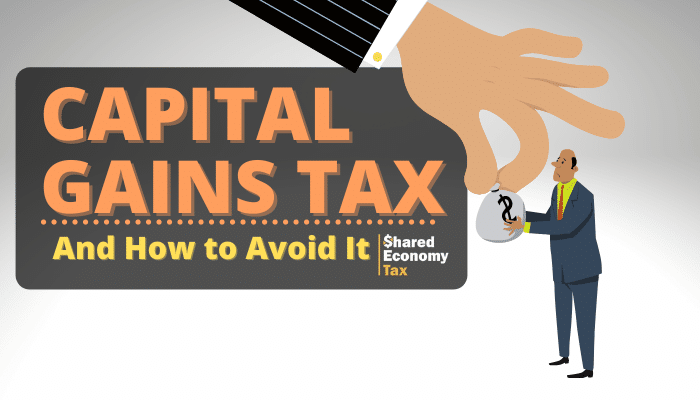Investing is all about turning profits, but those profits come with a price. Anytime you sell an asset for a financial gain, Uncle Sam wants his cut. The government takes its share of the loot through a capital gains tax. Capital gains taxes most commonly apply to sales of securities, like stocks and bonds, and real estate transactions. If you don’t report these profits to the IRS and pay the applicable taxes, you could get in a lot of trouble. However, there are some workarounds that can help reduce or eliminate the tax burden.
What is Capital Gains Tax?
The IRS assesses a capital gains tax for the profitable sale of any non-inventory asset. This typically applies to the sale of stocks, bonds, precious metals, real estate, and other big-ticket assets. However, the tax rate only applies to the profits derived from the sale.
For example, you purchased a $200,000 property last tax year. This year, you sold it for $400,000. You earned a cool $200,000 on the sale, and you have to pay a capital gains tax on your profits.
Tax Rate for Capital Gains
Capital gains tax rates vary based on how long you held the asset you sold. Depending on the length of ownership, you will be subject to either the short-term capital gains tax or long-term capital gains tax.
Short-Term Capital Gains Tax
Short-term capital gains taxes apply to assets held for one year or less. Any asset you buy and sell within one year are subject to the short-term rate.
Long-Term Capital Gains Tax
If you hold an asset for more than a year before you sell, the long-term rate applies. Long-term rates vary between 0% and 20%. depending on a variety of factors like income and tax rate. Long-term capital gains rates are typically lower than short-term rates.
How Do I Avoid Capital Gains Tax When Selling a House?
An increase in your tax bill can be a huge blow to anyone’s financial bottom line. There are a couple of things you can do to avoid capital gains when selling a house.
Primary Residence
You can exclude up to $250,000 for individuals and $500,000 for married couples for the sale of your primary residence. This exclusion is particularly helpful if you have owned the home for quite some time because real estate values tend to appreciate over time.
If the property is an investment property, you can convert the property to your primary residence and still claim this exclusion. However, you must own the property for at least five years and reside in it for at least two years.
Invest In “Like-Kind” Property
An exchange of “like-kind” property under Sector 1031 allows investors to defer taxes if they sell an investment property and buy another similar property within 180 days. The properties must produce income in order to qualify for this exclusion. As a result, primary and secondary residences don’t qualify unless they’re also investment properties.
Avoiding Capital Gains Taxes on Commercial Property
Investors can also take advantage of a 1031 exchange with commercial property. The same rules apply. Both properties must be income producing, and you have 180 days to make the exchange.
Capital Gains and Your Tax Return
Capital gains count as earned income, so these types of profits incur appropriate taxes. Capital gains get reported on form 8949. To fill out form 8949 you will need to use your 1099-B which will be provided to you by your broker. This outlines the information you need to report the gain. Form 8949 will be accompanied by Schedule D.
IRS Capital Gains Form: Schedule D
Schedule D is used to report income or loss from the sale of assets. Use this form to list assets, profits, and original cost basis for any sales subject to capital gains. If you lose money on an asset sale, you can claim up to $3,000 deduction to offset the loss. You can carry over residual losses to future tax years.
Get Real Estate Tax Help from the Pros
A professional tax advisor can help you get the most out of your real estate profits. The tax experts at Shared Economy Tax have unmatched experience in the short-term rental and home sharing space. Our team can provide valuable insights that will help you grow your business while minimizing your tax bill. Get started today with a one-on-one strategy session with a Shared Economy tax pro. You can also sign up for our free tax tips newsletter using the form below.
